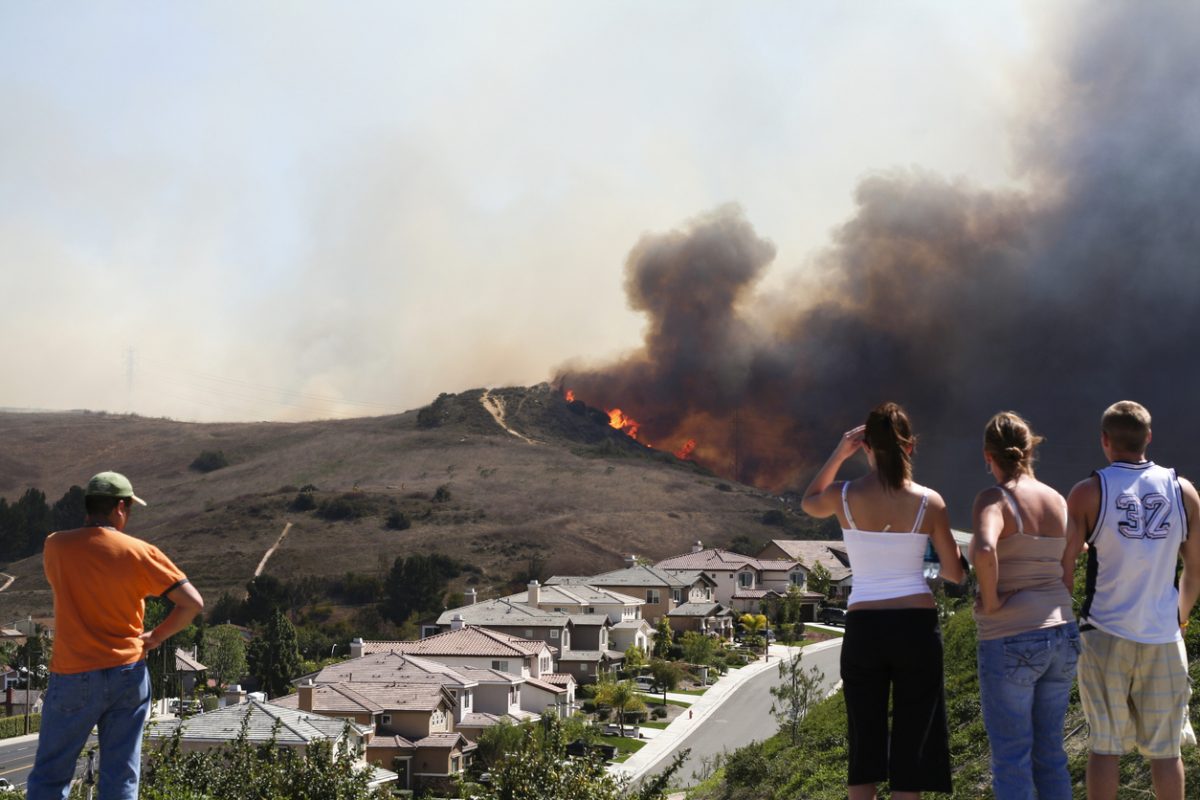
Prim Care Companion CNS Disord 2021;23(6):21com03206
To cite: Jain A, Jolly TS. Omicron (B.1.1.529) COVID-19 variant: a mental health perspective on lessons learned and future challenges. Prim Care Companion CNS Disord. 2021;23(6):21com03206.
To share: https://doi.org/10.4088/PCC.21com03206
© Copyright 2021 Physicians Postgraduate Press, Inc.
aMilton S. Hershey Medical Center, Penn State College of Medicine, Hershey, Pennsylvania
‡Both authors contributed equally.
*Corresponding author: Ankit Jain, MD, Milton S. Hershey Medical Center, Penn State College of Medicine, 500 University Dr, Hershey, PA 17033 ([email protected]).
During the week of November 8–14, 2021, the increasing trend in new global weekly cases of coronavirus disease 2019 (COVID-19) continued, with over 3.3 million new cases reported—a 6% increase compared to the previous week.1 As of November 14th, over 252 million confirmed cases and over 5 million deaths have been reported.1 In November 2021, as per the advice of the technical advisory group of the World Health Organization (WHO) on virus evolution, WHO designated B.1.1.529 as a variant of concern and named it Omicron. The designation is based on the different mutations of Omicron and the way it spreads.2 The transmissibility of Omicron is not yet clear, but there are concerns of immune escape or enhanced transmissibility with this strain as per the initial report. More studies are underway to better understand this variant. Similarly, the severity of the variant compared to previous variants is unknown. Initial data suggest that the hospitalizations in South Africa are increasing due to an increase in the overall number of people becoming infected by this variant. There is also preliminary evidence suggesting that there may be an increased risk of infection with this variant for patients who previously had COVID-19 infection.3 While we know that vaccines are extremely effective to prevent severe disease and death related to COVID-19 infection, their effectiveness against Omicron is yet to be established.3
We know what it takes to prevent the spread of COVID-19. The Centers for Disease Control (CDC) recommends that people follow prevention strategies such as wearing a mask in public indoor settings and in areas of substantial or high community transmission, washing their hands frequently, and physically distancing from others.4 The CDC also recommends that everyone 5 years and older protect themselves from COVID-19 by getting fully vaccinated. The CDC encourages a COVID-19 vaccine booster dose for those who are eligible.4 The Merck treatment, known as molnupiravir, has been reported to minimally decrease the hospitalization risk and mortality from COVID-19.5 The pill could be authorized for use in the United States within days and available to patients in upcoming weeks. Going forward, the US Food and Drug Administration may also authorize a similar medication from Pfizer. Together, the arrival of 2 easy-to-use treatments could provide protection against the resurgent virus.5 The COVID-19 pandemic has had huge physical and mental health impacts across all age groups over the last year and a half. Here, we discuss the potential mental health challenges that we might encounter in the wake of this new variant of COVID-19.
There is an increasing body of literature about the mental health impact of COVID-19–related stressors and neuropsychiatric sequelae of COVID-19 infection. In a prospective study,6 anxiety, depression, and posttraumatic symptoms were observed in 23%, 18%, and 7%, respectively, of COVID-19 survivors who had been hospitalized in an intensive care unit 4 months earlier. Worsening of depression, anxiety, and obsessive and compulsive symptoms as well as symptoms of posttraumatic stress disorder as a byproduct of pandemic-related stressors has been noted in various studies.7,8 COVID-19 brought about lockdowns, economic turmoil, unemployment issues, school closures, travel bans, and isolation from family. Increased worries related to this new strain and its potential impact on different spheres of life are expected. Increased media coverage and discussion of this strain on social media platforms will likely lead to anticipatory worry.
Vaccine hesitancy has been noted to be a challenge in the general population, especially in patients with preexisting mental health conditions.9 In a study by Shahani et al,9 only 47% of the patients in inpatient psychiatry settings accepted the first dose of COVID-19 vaccination as compared to a 60% acceptance rate in the general population. It has been noted that patients with psychiatric comorbidities have worse outcomes following COVID-19 infection compared to the general population.9 According to a recent study by Teixeira et al,10 patients with major psychiatric disorders demonstrated lower rates of COVID-19 positivity, which might be due in part to increased social isolation during a pandemic. However, this study10 also showed that patients with major psychiatric disorders were more likely to have comorbidities, which are associated with worse COVID-19 outcomes. This association was particularly noted in patients with schizophrenia, who were recorded to have high mortality rates from COVID-19 infection.10 In light of these findings, vaccination becomes more prudent for patients with psychiatric comorbidities to help lower the morbidity and mortality secondary to COVID-19 infection. While there is no scarcity of vaccine availability in the United States, countries with limited health care resources including vaccines and personal protective equipment face the ever-looming threat of increased infection and transmissibility with the Omicron variant in both the general and psychiatric populations.
Another important aspect of this most recent outbreak with the Omicron variant will be the impact it will likely have on the mental health of health care providers across the globe. The current pandemic has already taken a huge toll on the physical and mental health of medical staff across different medical specialties worldwide. There have been increasing cases of extreme burnout and a few cases of suicide by health care providers experiencing vicarious trauma secondary to taking care of COVID-19 patients.11 Also, increased isolation from family members and loved ones due to quarantine requirements has had an additional mental health impact.12 Research has shown that health care providers are at an increased risk of contracting COVID-19 in the context of taking care of patients.13 Despite vaccination providing much-needed respite, the fear of the new Omicron strain and its unclear effectiveness against COVID-19 infection might trigger acute worry for health care providers. An additional concern during these trying times is the mixed feelings that health care workers might have during rationing of care in the midst of vaccine refusal, which is often fueled by misinformation on social media platforms. Given the surge of cases among unvaccinated patients (especially those with serious mental illness) as well as concern regarding adequate protection of health care workers while caring for often aggressive psychiatric patients, there is an increased fear of the potential marked increase in transmissibility of Omicron compared to the Delta variant. The difficulty of managing interactions with antivaxxers and COVID-19–denying families (and patients) also is a further stress. Other concerns may relate to increased difficulty associated with psychiatric illness in the post-acute placement of COVID-19 patients (either for ongoing COVID-19 treatment or care of serious mental illness).
Conclusions
Currently, very little is known about the impact of the Omicron variant on the battle against COVID-19. While we will learn more about the physical impact of this variant in the coming few months, the mental health impact will likely unfold over the next year. Clinicians need to be prepared for the worsening of psychiatric comorbidities in the context of increasing worries about this strain, which is spreading rampantly. Over the past year and a half, we have seen telemedicine play a vital role in bridging the gaps in health care due to prolonged clinic closures. Telemedicine may continue to remain a crucial vehicle of health care delivery given the unpredictability around the Omicron variant and potential lockdowns. It remains vital for the general population and especially patients with psychiatric illnesses to get vaccinated and remain up to date with the vaccination recommendations. This will help prevent not only the infection itself but also subsequent neuropsychiatric sequelae due to COVID-19. Telehealth will continue to play a key role in providing medical and mental health care with the potential surge in cases resulting from the Omicron variant.
Received: December 9, 2021.
Published online: December 16, 2021.
Potential conflicts of interest: None.
Funding/support: None.
References (13)

- Weekly epidemiological update on COVID-19 - 16 November 2021. WHO website. Accessed November 21, 2021. https://www.who.int/publications/m/item/weekly-epidemiological-update-on-covid-19---16-november-2021
- Classification of Omicron. (B.1.1.529): SARS-CoV-2 Variant of Concern. WHO website. Accessed November 26, 2021. https://www.who.int/news/item/26-11-2021-classification-of-omicron-(b.1.1.529)-sars-cov-2-variant-of-concern
- Update on Omicron. WHO website. Accessed November 30, 2021. https://www.who.int/news/item/28-11-2021-update-on-omicron
- CDC Statement on B.1.1.529 (Omicron variant). CDC website. Accessed November 29, 2021. https://www.cdc.gov/media/releases/2021/s1126-B11-529-omicron.html
- Merck’s Covid Treatment Pill Wins Blessing of F.D.A. Panel. The New York Times website. Accessed November 30, 2021. https://www.nytimes.com/2021/11/30/business/merck-covid-antiviral-pill-fda.html
- Morin L, Savale L, Pham T, et al; Writing Committee for the COMEBAC Study Group. Four-month clinical status of a cohort of patients after hospitalization for COVID-19. JAMA. 2021;325(15):1525–1534. PubMed CrossRef
- Jolly TS, Pandian GSB, Batchelder E, et al. Posttraumatic stress disorder exacerbation as a result of public masking in times of COVID-19. Prim Care Companion CNS Disord. 2020;22(6):20l02828. PubMed CrossRef
- Jain A, Bodicherla KP, Bashir A, et al. COVID-19 and obsessive-compulsive disorder: the nightmare just got real. Prim Care Companion CNS Disord. 2021;23(2):20l02877. PubMed CrossRef
- Shahani L, Lane SD, Soares JC. COVID-19 vaccine hesitancy in the inpatient psychiatric setting. Psychiatr Serv. 2021;72(11):1360–1361. PubMed CrossRef
- Teixeira AL, Krause TM, Ghosh L, et al. Analysis of COVID-19 infection and mortality among patients with psychiatric disorders, 2020. JAMA Netw Open. 2021;4(11):e2134969. PubMed CrossRef
- Laboe CW, Jain A, Bodicherla KP, et al. Physician suicide in the era of the COVID-19 pandemic. Cureus. 2021;13(11)e19313. CrossRef
- Sasangohar F, Jones SL, Masud FN, et al. Provider burnout and fatigue during the COVID-19 pandemic: lessons learned from a high-volume intensive care unit. Anesth Analg. 2020;131(1):106–111. PubMed CrossRef
- Nguyen LH, Drew DA, Graham MS, et al. Risk of COVID-19 among front-line health-care workers and the general community: a prospective cohort study. Lancet Public Health. 2020 Sep;5(9):e475–e483. PubMed CrossRef
Enjoy this premium PDF as part of your membership benefits!




